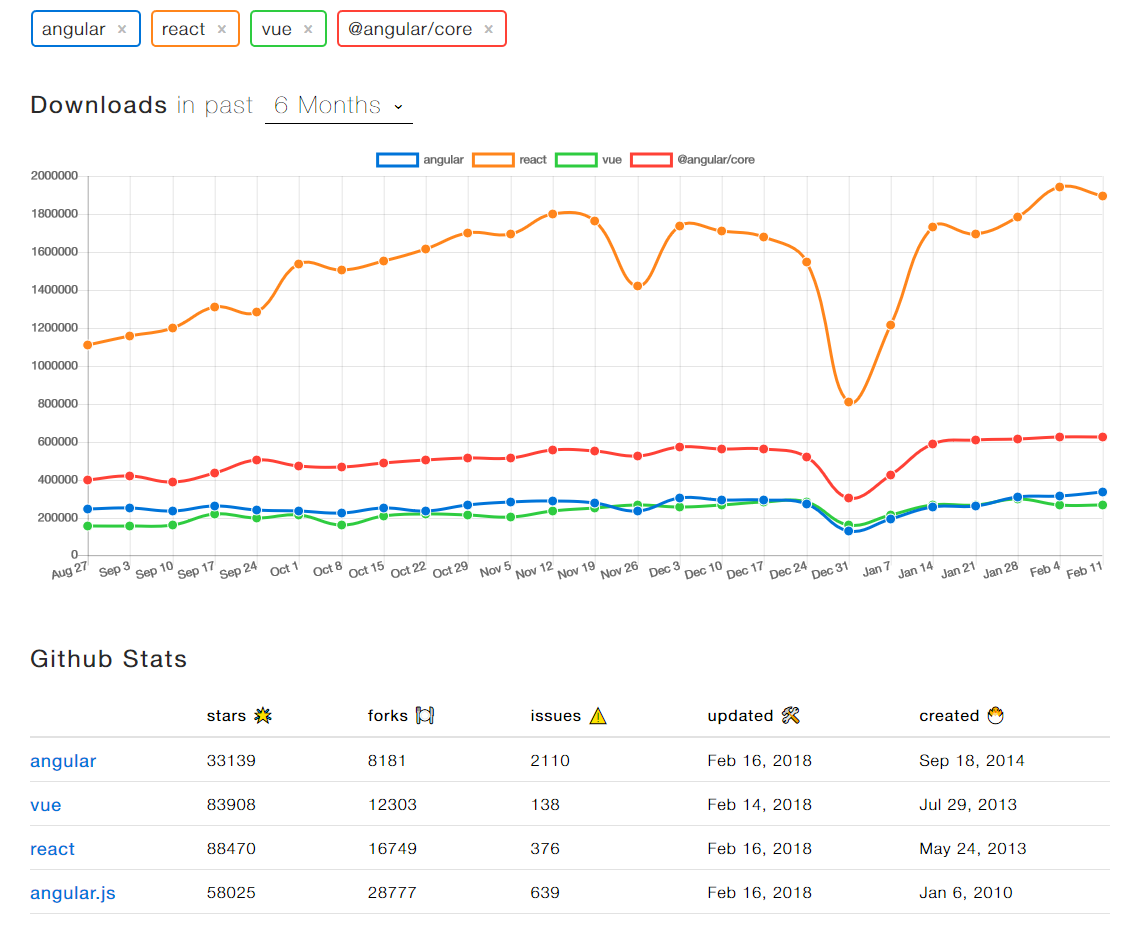What is AngularJS?.
AngularJS is a TypeScript based JavaScript framework versus a library. Its refactoring and API improvements has made it closer to MVVM framework. It provides a cross platform support and also provides native support via strategies from Ionic Framework, NativeScript, and React Native. It provides the ability to create rich UI views with powerful templates, that turn into code, highly optimized for performance with the ability to load only the code required using Component routers.
| Maintained by | License Type | Popular Examples | Support | Updates | Developer Skills |
|---|---|---|---|---|---|
| Google and it describes Angular as “Super heroic JavaScript MVW Framework”. | MIT License | Otto | Google, Wix, Weather.com, healthcare.gov and Forbes | Supported for at least one year beyond the next major version release | Starting with Angular v2 release, there will be one major update every six months and depreciation period of at least six months. |
| Often Compared to | Testing | Accessibility | Maintained by | Repository |
|---|---|---|---|---|
| React and Vue | Karma for unit testing Protractor for scenario testing |
ARIA-enabled components, developer guides, and built-in a11y test infrastructure. | Google and it describes Angular as “Super heroic JavaScript MVW Framework”. | github.com/angular/angular |
Pros:
- Offers more consistency because of its reliance on TypeScript
- Provides strong opinions as to how your application should be structured and also has more functionality out of the box
- Angular two-way data binding, dependency injection provides cleaner code
- Provides NativeScript for native apps and Ionic Framework for hybrid apps
Cons:
- Forces you to learn special Angular specific syntax and comes with a steep learning curve.
- TypeScript still has a tiny user base compared to that of the whole JavaScript language, hope it doesn’t disappear. Fingers crossed!
- Because of the use of TypeScript, you cannot simply add Javascript libraries to the source
- Angular framework is bloated in size compared to React and Vue.
